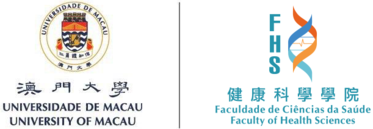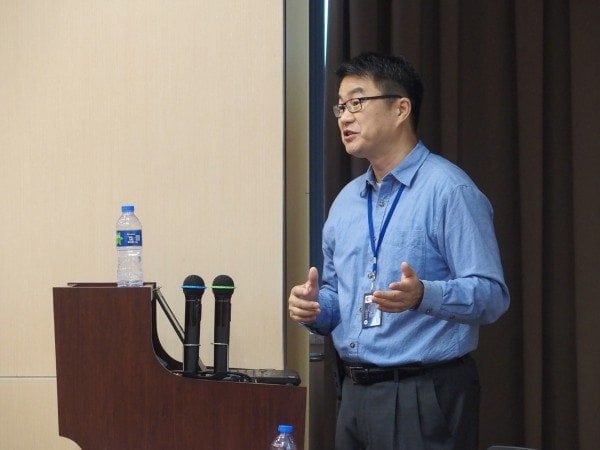| Talk title | Decisive role of TNF (Tumor Necrosis Factor) in the function of immunosuppressive cells and its therapeutic implications |
| Speaker | Prof. Xin CHEN Professor, State Key Laboratory of Quality Research in Chinese Medicine, Institute of Chinese Medical Sciences, University of Macau |
| Date & Time | 10 February 2017 (Friday) 10:00-11:30 |
| Venue | Room G004, E12 Building (University of Macau) |
| Biosketch |
Dr. Chen obtained his bachelor degree of Medicine and MSc degree from Hubei University of Chinese Medicine, and PhD degree from Guangzhou University of Chinese Medicine. He also owned a PhD degree in immunology from Radboud University Nijmegen (Netherlands). Dr. Chen began his post doctoral training at the School of Pharmacy and Biomedical Sciences, University of Portsmouth, UK. In 1999 he was a Visiting Fellow at the Laboratory of Molecular Immunoregulation, National Cancer Institute (NCI)-Frederick, National Institutes of Health (NIH), USA. He had been a Scientist II and then a Senior Scientist in SAIC-Frederick, Inc. and Leidos Biomedical Research, Inc. at NCI/NIH since 2001. He joined the University of Macau in 2014 as a Full Professor of Biomedical Sciences at Institute of Chinese Medical Sciences. Currently, he is also appointed Research Collaborator at NCI, NIH, USA. |
| Abstract |
The pleiotropic cytokine tumor necrosis factor-alpha (TNF) is a major participant in the initiation and orchestration of complex events in inflammation and immunity. The biological functions of TNF are mediated by two structurally related, but functionally distinct receptors, TNFR1 (or p55) and TNFR2 (or p75). TNF has well-documented proinflammatory effects. Nevertheless, we unexpectedly found that TNF through TNFR2 preferentially activated and expanded Tregs. Furthermore, TNFR2 was constitutively expressed by Tregs and the expression of this receptor was able to identify the maximally suppressive subset of Tregs. TNF was able to up-regulate the expression of TNFR2, as well as other co-stimulatory TNFRSF members, on Tregs. More recently, we reported that TNF-TNFR2 interaction was also critical for the phenotypic and functional stability of Tregs. Tumor infiltrating Tregs expressed high levels of TNFR2 and they are highly immunosuppressive cells. The decisive role of TNF-TNFR2 signaling in Treg homeostasis was shown by the profound reduction of Tregs in mouse stains genetically ablation of TNFR2 ligands or receptor or its signaling component. Therefore we hypothesized that targeting of TNFR2 may be a novel strategy to eliminate Treg activity and consequently improve anti-tumor immunity. Indeed, we found that treatment with antibody against TNFR2 alone was able to inhibit tumor growth in mouse model. Furthermore, in combination with suboptimal dose of CpG ODN, TNFR2 blockage markedly inhibited CT26 tumor growth, resulting in up to 80% mice becoming tumor-free survival. This effect was mediated by the activation of anti-tumor immunity, since surviving mice were resistant to the re-challenge of CT26 tumor, while irrelevant 4T1 mammary carcinoma could develop on these mice. Anti-TNFR2 Antibody treatment markedly reduced the TNFR2 expression by tumor infiltrating Tregs. Thus, combination treatment with anti-TNFR2 Ab with CpG is likely associated with the attenuation of Treg activity in tumor environment. Our findings suggest that targeting TNF-TNFR2 pathway may represent a novel strategy to eliminate Treg activities in tumor patients and consequently enhance the efficacy of tumor immunotherapy or cancer vaccine. |


